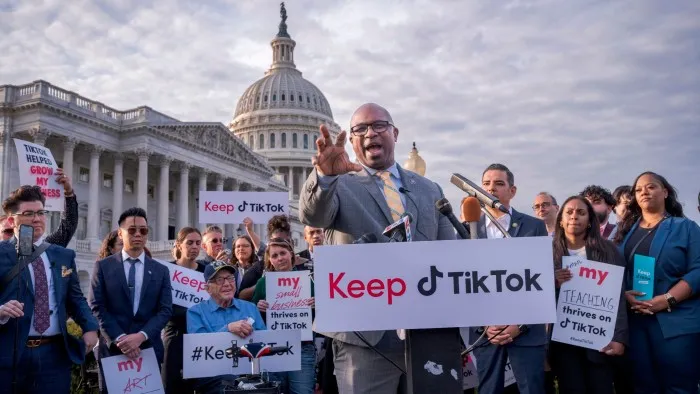In the evolving landscape of American politics, few topics are as divisive—and consequential—as immigration. Now, artificial intelligence (AI) is becoming a powerful, polarizing force in this national conversation. From streamlining visa processing to enhancing border security, AI is reshaping how the U.S. government handles immigration. However, the rise of AI tools in this space is sparking fierce debate, as lawmakers and advocates clash over issues of surveillance, bias, privacy, and human rights.
The Promise of AI in Immigration
AI technology is being integrated into nearly every facet of immigration policy and enforcement. Proponents argue that these tools can increase efficiency, improve national security, and reduce administrative burdens. Here’s where AI is making its mark:
1. AI-Powered Visa Processing
The U.S. AI algorithms are now being used by Citizenship and Immigration Services (USCIS) to speed up the processing of visa and asylum applications. Natural language processing (NLP) tools can quickly analyze massive volumes of applicant data, reducing processing times and streamlining casework.
By automating repetitive tasks and flagging discrepancies, AI can potentially reduce human error and improve transparency—benefits that are especially significant in a system that has long been criticized for backlogs and inefficiencies.
2. Border Surveillance and Facial Recognition
Customs and Border Protection (CBP) and Immigration and Customs Enforcement (ICE) are investing in AI-driven technologies to enhance border control. These include:
- Facial recognition at airports and ports of entry
- AI-assisted drone surveillance over border regions
- Predictive analytics to identify high-risk travelers
- License plate tracking and biometric verification systems
These systems are designed to monitor activity more effectively, track visa overstays, and support law enforcement operations.
3. Language Translation and Interview Assistance
AI tools like real-time language translation software and speech recognition are being used in asylum interviews and immigration court hearings. These tools aim to help non-native English speakers navigate complex legal procedures more effectively and ensure better communication between immigrants and officials.

Political Flashpoints: Efficiency vs. Ethics
Despite the technological advantages, the use of AI in immigration is a flashpoint for political and ethical controversy. Critics across the political spectrum raise concerns about surveillance overreach, algorithmic bias, and due process violations.
1. Privacy and Civil Liberties
Civil rights advocates argue that AI-enhanced surveillance threatens privacy and leads to unwarranted tracking of both immigrants and U.S. citizens. Facial recognition software, for example, has been criticized for disproportionately misidentifying people of color and leading to wrongful detentions.
There is also concern over how data is stored, shared, and used by different government agencies, with some calling for stronger oversight and accountability.
2. Algorithmic Bias and Transparency
The quality of AI systems depends on the quality of the data they are trained on. Critics warn that historical biases embedded in immigration data—such as profiling by country of origin or criminal records—could be perpetuated or even amplified by machine learning models.
Lack of transparency in how decisions are made also undermines trust. Applicants whose cases are denied based on AI assessments may have little recourse or understanding of the reasoning behind the decision.
3. Impact on Vulnerable Populations
Human rights groups caution that AI can dehumanize immigration enforcement, turning life-altering decisions into data points. Refugees and asylum seekers, many of whom are fleeing trauma, could be subject to emotionless risk assessments and pattern-matching models that fail to capture the nuance of individual circumstances.
Bipartisan Divide in Washington
Republicans and Democrats are taking radically divergent stances as AI capabilities are increasingly incorporated into immigration laws.
- Republicans generally support AI adoption for national security, border surveillance, and fraud detection. Many believe that AI can help enforce laws more efficiently and curb illegal immigration.
- Democrats, while recognizing the potential benefits of tech-assisted immigration processing, are more cautious about surveillance, civil rights violations, and the lack of transparency. They have called for moratoriums on certain technologies like facial recognition and are advocating for federal AI ethics legislation.
The debate has led to partisan standoffs on Capitol Hill, particularly around funding for AI-enhanced border technology and oversight mechanisms. Some bills aimed at regulating AI in government systems have stalled due to disagreements over enforcement and privacy standards.
AI and Immigration Reform: A Double-Edged Sword
The intersection of AI and immigration also raises philosophical questions: Can technology make a broken system more humane—or does it risk further entrenching inequities?
Potential Benefits:
- Reduced Backlogs: AI could alleviate years-long wait times for visas and green cards.
- Fairer Decisions: If properly designed, AI may reduce subjective bias in case evaluations.
- Resource Optimization: AI tools could allow human agents to focus on complex or humanitarian cases.
Risks and Challenges:
- Dehumanization: Replacing human judgment with AI could lead to emotionally detached decisions.
- Lack of Recourse: Applicants may struggle to appeal decisions made by opaque AI systems.
- Function Creep: Surveillance tools deployed for immigration could be repurposed for broader domestic monitoring.
Public Sentiment and Tech Industry Response
Public opinion is divided. A 2024 Pew Research survey found that:
- 54% of Americans support using AI to speed up visa applications
- Only 39% support the use of facial recognition at border crossings
- 62% express concern about AI-related data privacy in government systems
Meanwhile, tech companies are increasingly involved in immigration AI tools. Companies like Palantir, Amazon Web Services, and Clearview AI have faced criticism for supplying surveillance technologies to immigration agencies.
In response, some tech workers and ethicists have staged walkouts and demanded stricter ethical guidelines for AI use in immigration.
Moving Forward: Regulation and Reform
As AI continues to permeate immigration systems, experts and policymakers are calling for a clear legal framework to ensure fairness, accountability, and oversight. Key proposals include:
- AI transparency mandates for all tools used in public policy decisions
- Independent audits of government AI systems
- More robust data privacy regulations to safeguard both citizens and foreign nationals
- Appeals processes for AI-influenced immigration decisions
- Limits on facial recognition use and biometric data collection
Some advocates suggest the creation of a federal AI ethics board to review the use of artificial intelligence in all government functions, including immigration.
Conclusion
The collision of U.S. politics and AI-driven immigration tools presents both opportunity and peril. As lawmakers grapple with the balance between efficiency and ethics, the outcomes of this debate will shape the future of not only immigration policy—but also how technology is wielded in matters of justice, rights, and human dignity.
Artificial intelligence has the potential to modernize an aging system, but without careful regulation, it risks reinforcing the very problems it seeks to solve. As the political divide deepens, finding common ground on ethical AI use may be one of the most critical challenges facing American governance in the digital age.




